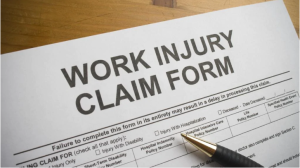


10/12/2019
A new report has revealed insurers treat injured workers badly and the bad treatment happens often, writes Rachel Schutze.
LAST week the Victorian Ombudsman released its second report in three years as to the performance of the WorkCover system. The report told us what we already know, insurers treat injured workers badly and the bad treatment happens often.
Assisting injured workers to access their entitlements in the WorkCover scheme is what I and my colleagues at Gordon Legal do every working day.
WorkCover clients usually seek out legal advice for one of a few reasons.
Workers do not know where to find and how to access basic information about how to make a claim or even where to access a claim form. Many people contact us having been referred by a doctor, family friend or union for information, advice and reassurance.
Some clients seek our advice when the insurer has made a negative determination in relation to their entitlements or not made a determination at all. The examples of this are endless. Clients with psychological injuries almost universally have their claims rejected on the insurer’s erroneous interpretation of the “reasonable management action” defence in the legislation. The rejection of their claim requires people with a psychological injury, often at their most vulnerable moment, to summon the courage to access the dispute resolution mechanisms of the legislation. Without support, many just give up leaving them behind and lost in the system.
Another example are clients whose doctors have written to the insurer and have requested treatment such as surgery, only for the request either not to be responded to or, to be rejected without the insurer obtaining appropriate medical information to support the denial. This can delay necessary and important treatment for injured workers for months and sometimes years without a chance to recover and get back to work. The impact is devastating.
For regional clients there is added pain and inconvenience when insurers require clients to attend medical examinations with independent medical examiners in Melbourne or worse still, the other side of Melbourne such as Ringwood or Box Hill, requiring a two-hour drive for the injured client, each way.
Why don’t the insurers have their independent medical examiners travel to regional areas to see injured workers? After 15 years of assisting workers to access their entitlements, I believe it is because the convenience of the doctor is prioritised by the insurer over the inconvenience of the injured worker.
Worse still, the long drive at a known date and time enables the insurers to use investigators to conduct unwarranted surveillance on regional clients. It is cruel and unnecessary. The Ombudsman report stated, “such an invasion of people’s privacy is only permitted if there is some evidence of dishonesty, but we found numerous examples of surveillance being used without a shred of evidence to justify it”.
Conciliation’s efficacy is frustrated by insurers refusing to pay for medical reports from treating practitioners on the basis that the cost charged is unreasonable. The result is that the worker does not have sufficient and appropriate medical support in the dispute. This is a denial of access to justice and a perversion of the legislative intent. It is also false economy as the dispute may be resolved with the provision of an orthopaedic surgeon’s report costing $1000. Instead, the dispute will then often cost the scheme more than $20,000 in both side’s legal costs and disbursement’s in the Magistrates Court. As the Ombudsman says, “the financial viability of the scheme is imperative; but the balance between financial sustainability and fairness for injured workers has tilted too far away from the latter”.
Clients with permanent injuries will also seek advice about their entitlement to lump sum claims. These clients are often seriously as well as permanently injured and depend long term on the safety net that the WorkCover system provides even after their common law claim has resolved. Once an ongoing entitlement is terminated after their common law claim resolves these WorkCover recipients are exhausted by the “war by attrition” and often, just go away. My experience is that the insurers rely on this emotional exhaustion to reduce the financial impact of long term injured workers on the system.
Last week’s Ombudsman report makes important recommendations which have been accepted by state government. The report aims to ensure that fair decisions are made by the insurers in accordance with law. Moreover the ombudsman report aims to improve the way that injured workers are treated by insurers in the WorkCover system. Injured workers should be treated well, always.
Rachel Schutze is a Principal at Gordon Legal, wife and mother of three. [Ed’s note: Ms Schutze is married to Corio MP Richard Marles]

No win, no fee
Help when you need it most without the added stress of upfront legal fees engaging a
no win, no fee lawyer. When you need legal help, understandably, the first thing people often think is ‘can I afford it? To address this, our Senior Partner, Peter Gordon and Partner, Paul Henderson pioneered the ‘no win, no fee’ system to create greater access to the legal system.
We are here to help
When you’re ready, give us a call or click on the button below to send us a message. It will go straight to a caring and committed member of our team who will contact you within 24 hours.
